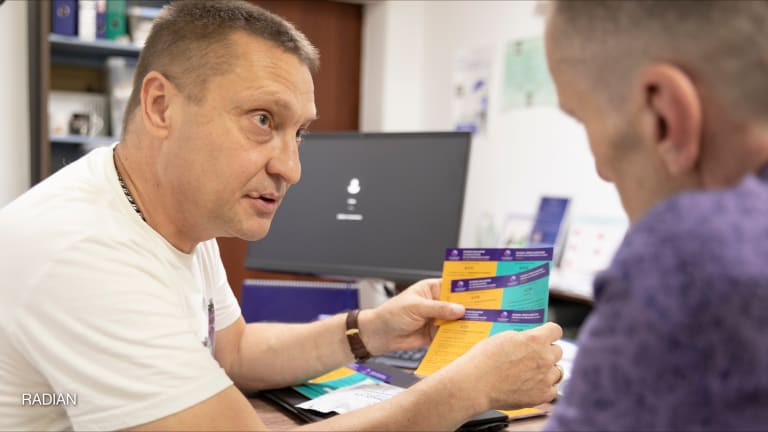
The Democratic of the Congo is facing the largest Ebola outbreak ever recorded in the country. Multiple actors are responding to the outbreak, and the money is pouring into the country. Today, eight months since the beginning of the outbreak, the epidemic is still not under control, and Ebola treatment centers have become the target of attacks.
Yet the needs go well beyond Ebola. People in DRC have been struggling for decades with recurring emergency health needs stemming from violence, displacement, and continuous obstacles to accessing health care — and there is an insufficient response from the international community.
Every day, our teams in eastern DRC witness the dramatic effect of violence and insecurity on the people. Each time there is an outbreak of violence, people flee to safer areas. This happens so regularly that we observe a cycle of displacement: One day, people find themselves displaced, only to become the ones to host displaced populations themselves the next day. Over and over again.
“We suffer a lot when we have to flee to the forest. Last time we had to leave our homes and lived in the bush, some of us died,” a 44-year-old displaced woman told our teams on the ground. Sadly this is not an uncommon story.
Everyone is affected — men, women, and children. Many may find themselves displaced for longer periods, while others move back and forth between nominally safe areas. For some, it means moving away from their homes forever. At times there is nowhere safe to run to. And for many, abandoning their land — the only source of livelihood — is not an option, forcing people to stay close to home despite the danger.
Heartbreakingly, we hear many stories of parents who have not seen their children since they were last forced out of their homes by violence. Many were working on the land when they heard gunshots. They tell us they had no choice but to flee for their lives, not having time to find their children.
The direct impact of the fighting combined with pervasive violence leaves already vulnerable men, women, and children even further at risk. Leaving your house because you are told fighting will soon hit your village means picking up what you can and leaving as fast as you can. People have no choice but to seek shelter in the forest or bush, completely exposing them to the elements, with no mosquito nets, no cooking equipment, and no access to clean drinking water — further increasing the risk of malaria and waterborne diseases.
The fighting also means disrupting the work in health facilities, with fewer health care workers, and medical supply problems at clinics and hospitals. For those people who do manage to reach health facilities, there often isn’t the staff and medicines to treat people. A woman carrying a 5-month-old child in her arms recently explained to our teams she had visited a pharmacy twice in a week for medicine that was not available.
Rather than being the exception, these stories have become the norm for the people of eastern DRC. But what has become the norm should not be misinterpreted as the new normal.
The challenges in reaching people are many. Finding and subsequently reaching displaced populations in remote areas is extremely difficult in tough terrain, even more so with the ongoing insecurity and all too recurrent attacks on health care workers.
Independent, principled humanitarian action purely based on needs is increasingly limited in DRC. Funding remains insufficient to ensure an adequate response. When aid does reach eastern Congo it is mostly insufficient or too late, leaving vulnerable people deprived of the critical assistance they urgently need.
Simply put, it is just not acceptable.
In this context of protracted crisis, difficulties in accessing health care results in increased health risks for the population — due to insecurity, difficult terrain, poverty, and vulnerability. It is therefore essential to look at alternative care models.
This means health care systems that are adapted to local settings, simplified, and designed to address barriers for patients. One such example would be care to stable HIV patients. By separating the medical check-up from the refill of medication, patients don’t have to travel as often to health care clinics. Through community-level support, patients can obtain medications in their home communities, safeguarding regular access to medicine while reducing the number of times they need to travel.
Humanitarian actors and donor governments can develop and implement, including through their support to the Congolese ministry of health, alternative care models to ensure medicines reach those even in the most remote areas.
Whether or not the Ebola epidemic will be under control any time soon, the other needs of millions of Congolese men, women, and children need to be addressed — a child dying of measles is as unacceptable as a person dying of Ebola.
Search for articles
Most Read
- 1
- 2
- 3
- 4
- 5








